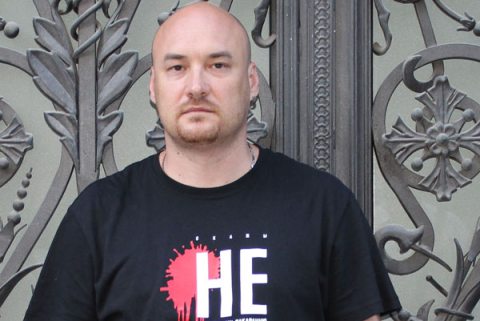Valiantsin Stefanovich: “In 1996, when a referendum was held, there was no life imprisonment in Belarus”
-

- Valiantsin Stefanovich
Why does Belarus retain such a means of punishment as the death penalty? Deputy Chairman of the Human Rights Center “Viasna” Valiantsin Stefanovich believes that the cause must be sought in the Soviet past. In the USSR, the death penalty was used for a wide range of crimes.
- Belarus is a fairly conservative country. I mean Soviet conservatism, not religious or any other conservatism, but the Soviet conservatism. If we recall the history of the Soviet Union, there the death penalty plays a significant role. In the post-revolutionary period and in the 30s, the death penalty was very widely used in the Soviet Union, and for a very wide range of offenses. People were shot not only for murders and acts of violence against a person, but the death penalty was also applied to people who were “enemies of the state”, as well as for economic crimes. For example, in the Soviet Union for a long time there was an article that provided for the death penalty for theft of state property in especially large amounts. Article was only canceled in the late 1980s. In this connection, it is possible to explain why Belarus retains the death penalty.
A year ago, Valiantsin Stefanovich spoke at the Fifth World Congress against the Death Penalty, which was held in Madrid on 12-16 June 2013. The Belarusian human rights defender told how public opinion about the death penalty was formed in Belarus.
- With regard to public opinion in Belarus, I would highlight two aspects. In 2011, there was a terrorist attack in Minsk subway, which killed 15 people. It was for the first time in Minsk and the whole society was shocked because we had never seen such crimes before. It would seem that public opinion should speak even more in favor of the death penalty, but the opposite thing happened – a lot of people specifically in this case began to speak against the death penalty, because they did not trust the investigation and the sentence that was imposed on two young men accused of committing the terrorist act. Now we can see a situation where people are in favor of the death penalty, except for the “case of the terrorists”, which was “unfair”. In 2011, after the sentencing of Kavaliou and Kanavalau, public outcry was so great that for the first time representatives of the two largest religious denominations – Orthodox and Catholic – publicly stated their position on the death penalty. When the authorities refer to the results of the 1996 referendum, they forget that the issue of the death penalty was of mandatory character, had a so-called “consultative status”. And secondly, in 1996, when the referendum was held, there was no life imprisonment in Belarus and there were just the death penalty and 15 years. This is also a very important factor. Public opinion is not static, it is changing. But there is no dialogue on the death penalty in the society – this issue is not discussed. NGOs can work in this direction, but their capabilities are very limited, they cannot go to the state television. We can only disseminate information on the Internet and organize outdoor events, which do not always end without consequences.

